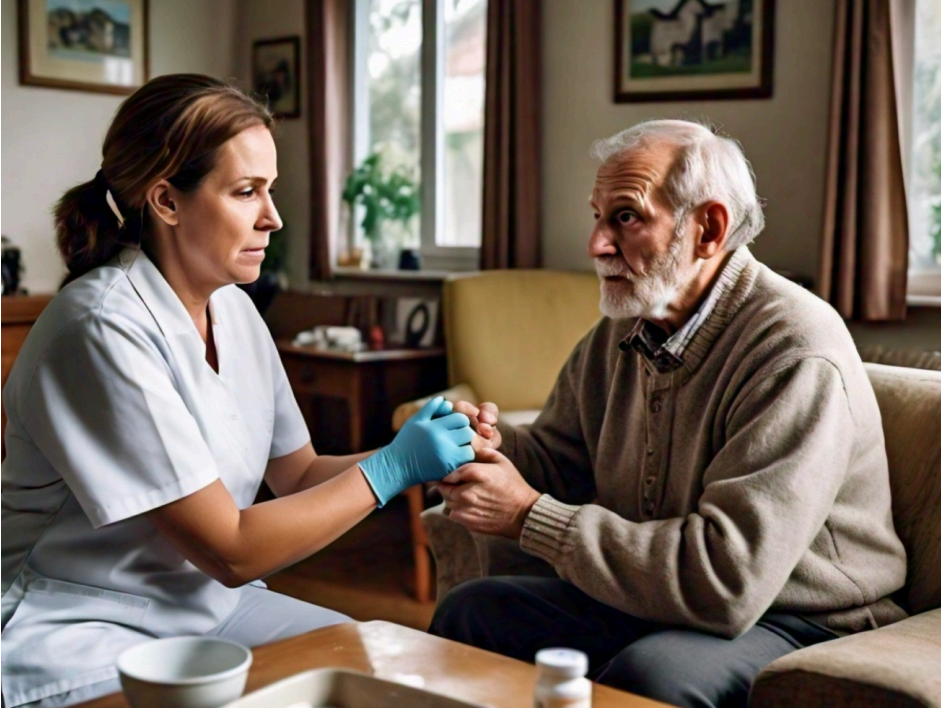How Can Home Health Caregivers Prevent Skin Infections In Seniors?
As a home health care giver, you play a vital role in helping seniors manage skin infections and maintain their overall well-being. Skin infections can be a significant concern for seniors, especially those with underlying health conditions or mobility issues. In this article, we will explore the importance of managing skin infections in seniors, the types of skin infections that commonly affect seniors, the signs and symptoms of skin infections, and how you can help prevent and manage skin infections as a home health care giver.
Why Managing Skin Infections is Crucial
Managing skin infections is crucial for seniors as they can lead to serious complications, such as sepsis, amputation, and even death. Skin infections can also significantly impact a senior’s quality of life, causing pain, discomfort, and embarrassment. As a home health care giver, you can help prevent and manage skin infections, improving the overall health and well-being of your clients.

Common Skin Infections in Seniors
Seniors are susceptible to a variety of skin infections, including:
- Cellulitis: A bacterial infection that affects the skin and underlying tissues.
- Pressure Ulcers: Also known as bed sores, these are wounds that develop as a result of prolonged pressure on the skin.
- Folliculitis: An infection of the hair follicles.
- Abscesses: Pockets of pus that form as a result of bacterial infection.
- Fungal Infections: Such as ringworm and athlete’s foot.
Signs and Symptoms of Skin Infections
It is essential to be aware of the signs and symptoms of skin infections, which can include:
- Redness, swelling, and warmth around the affected area
- Pus or discharge from the wound
- Foul odor from the wound
- Increased sensitivity or pain
- Fever or chills
- Delayed healing of wounds or cuts
Preventing Skin Infections
As a home health care giver, you can help prevent skin infections by:
- Maintaining Personal Hygiene: Assisting with bathing, dressing, and grooming to keep the skin clean and dry.
- Monitoring for Skin Changes: Keeping an eye out for any changes in the skin, such as cuts, abrasions, or unusual growths.
- Encouraging Mobility: Helping seniors stay active and mobile to prevent pressure ulcers and other skin-related issues.
Here are some ways home health caregivers can prevent skin infections in seniors.
- Encourage seniors to wash with mild, fragrance-free cleansers to prevent skin irritation.
- Apply moisturizer daily to prevent dry, itchy skin.
- Wear gloves when dealing with skin infections.
- Sanitize surfaces regularly with an anti-bacterial solution.
- Get vaccinated against infections.
- Encourage seniors to wear long-sleeved, lightweight clothes to protect skin from the sun.
- Remind seniors to drink around six to eight glasses of water a day.
- Encourage seniors to get enough sleep, around seven to nine hours each night.
- Remind seniors to eat a balanced diet rich in antioxidants, vitamins and minerals.
- Encourage seniors to quit smoking, and limit alcohol and caffeine consumption to prevent dehydration.
- Place a humidifier in the bedroom to keep the air moist.
- Wash gently and not too often to prevent skin from drying out.
- Apply lotions to fight direct dryness, especially following baths and before bed.
Conclusion
Managing skin infections is a critical aspect of home health care for seniors. By understanding the importance of managing skin infections, the types of skin infections that commonly affect seniors, the signs and symptoms of skin infections, and how to prevent and manage skin infections, you can provide high-quality care to your clients.
